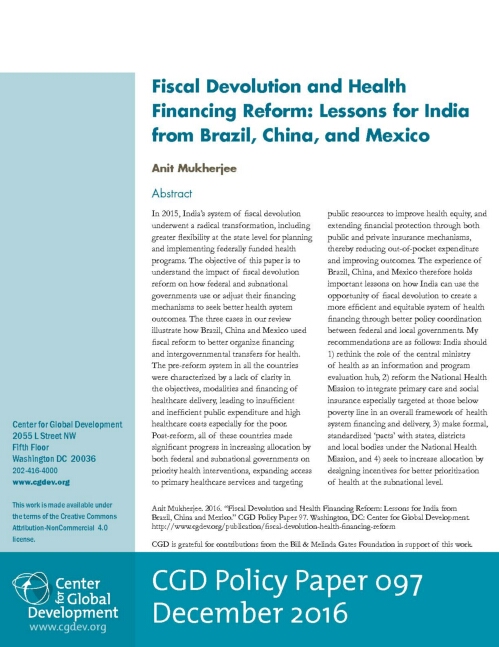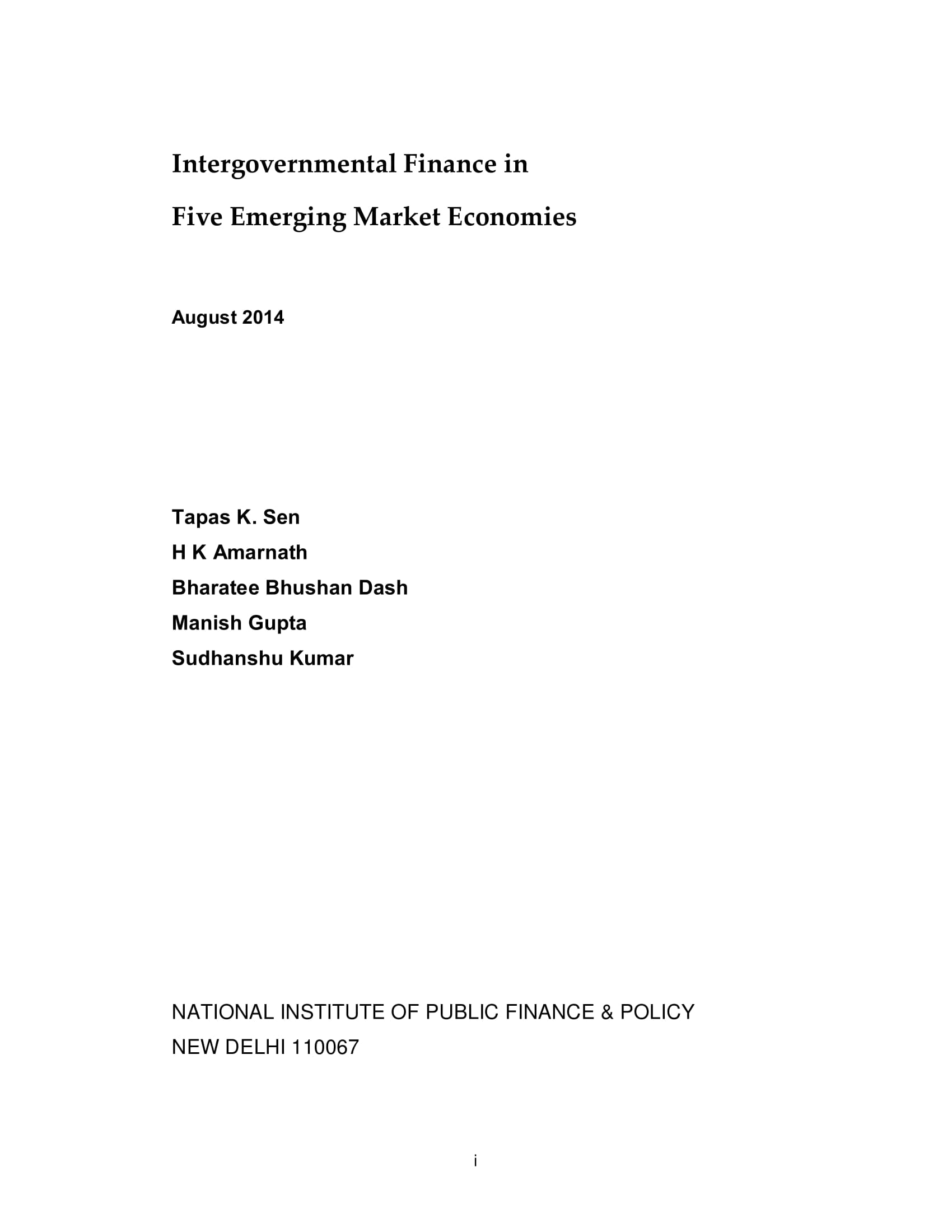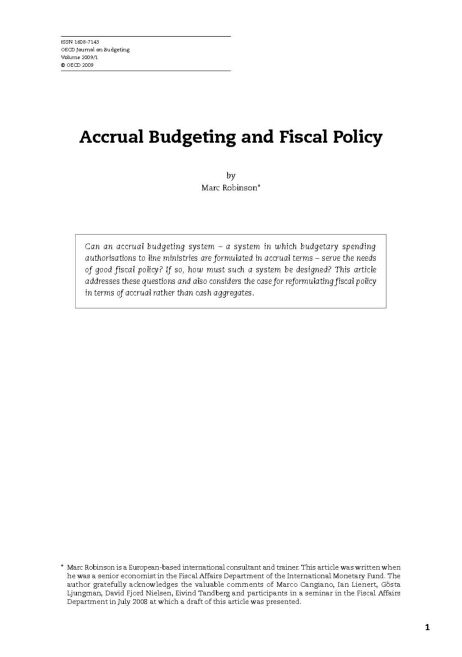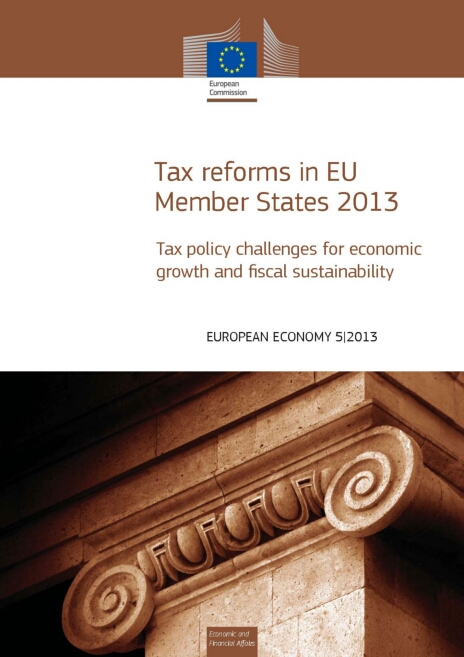Fiscal Devolution and Health Financing Reform: Lessons for India from Brazil, China, and Mexico
- Anit Mukherjee
- Dec 2016
- Center for Global Development (CGD)
- International
The experience of Brazil, China and Mexico holds important lessons on how India can use the opportunity of fiscal devolution to create a more efficient and equitable system of health financing through better policy coordination between federal and local governments. The three cases in this paper illustrate how Brazil, China and Mexico used fiscal reform to better organize financing and intergovernmental transfers for health. The pre-reform system in all the countries was characterized by a lack of clarity in the objectives, modalities and financing of healthcare delivery, leading to insufficient and inefficient public expenditure and high healthcare costs especially for the poor. Post-reform, all of these countries made significant progress in increasing allocation by both federal and subnational governments on priority health interventions, expanding access to primary healthcare services and targeting public resources to improve health equity, and extending financial protection through both public and private insurance mechanisms, thereby reducing out-of-pocket expenditure and improving outcomes.








